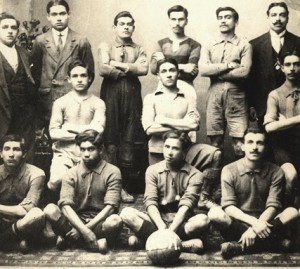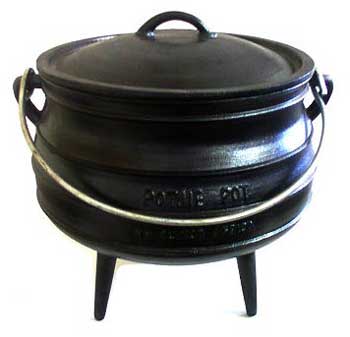Before Pinochet’s rise to power in the September 11, 1973, coup, football clubs sustained a vigorously democratic culture, writes historian Brenda Elsey in her brilliant book Citizen and Sportsmen: Fútbol and Politics in 20th-Century Chile. Colo-Colo and Chile national team forward Carlos Caszely embodies this story. He is at the heart of episode 4 of the “Football Rebels” series on Al Jazeera (iOS users watch it here).
Brought up in a left-wing family in Santiago with its fair share of Communists, Caszely was not your typical professional footballer. He was active in the Players’ Union while many professionals saw themselves as “apolitical,” chiefly concerned with maintaining the status quo. Caszely was well known for his vocal support of Salvador Allende’s Popular Unity government: “Since I had use of my own reason,” he said, “I have liked the Left and I am not thinking of changing my ideals,” (Elsey, p. 217).
Interestingly, two months to the day after the coup, Caszely participated in what may well be the strangest match in football history. He took the field for Chile at the National Stadium in a World Cup qualifier against the Soviet Union. But the opponents were not there. Defying FIFA, the Soviets had refused to play in a stadium where more than 12,000 people had recently been imprisoned, tortured, raped, and brutalized by Pinochet’s goons. Caszely played that day because he was scared for his family’s safety. Sadly, this fear was borne out by the regime’s assault on his mother, whose direct testimony provides a dramatic highpoint in the film. As the footballer says: “I said no to dictatorship on every level: no to dictatorship, no to torture . . . So they made me pay for that with what they did to my mother.”
Caszely would go on to score 29 goals in 49 matches for Chile, taking part in both the 1974 and 1982 World Cup finals. He spent five years in Spain (1973-78) before returning to Colo-Colo. In the twilight of his career, Caszely also played for the New York Cosmos (1984) and for Ecuador’s most decorated club, Barcelona SC of Guayaquil. “Ever since I was a little boy and I started walking, holding my father’s hand, in the district where people play against a wall, against a tree, against a mound, against a big stone, against your opponent, with a football, a plastic ball, a rag ball, a paper ball, even a tin can, if there’s nothing else . . .” he always found a way to play. Despite the regime’s repression and intimidation, Caszely’s conscience and his passion for the game could not be silenced. El pueblo unido jamas serà vencido!
Tag: Chile
Fútbol and Politics in Chile
 The Football Scholars Forum launches its 2011-12 season this Friday (Sept. 23, 3pm EDT) with Brenda Elsey’s new book Citizens and Sportsmen: Fútbol and Politics in Twentieth-Century Chile (University of Texas Press, 2011). It’s a fresh look at life in twentieth-century Chile through an exploration of how fútbol clubs integrated working-class men into urban politics, connected them to parties, and served as venues of political critique. You can join the conversation online via Skype. For more information visit the FSF website.
The Football Scholars Forum launches its 2011-12 season this Friday (Sept. 23, 3pm EDT) with Brenda Elsey’s new book Citizens and Sportsmen: Fútbol and Politics in Twentieth-Century Chile (University of Texas Press, 2011). It’s a fresh look at life in twentieth-century Chile through an exploration of how fútbol clubs integrated working-class men into urban politics, connected them to parties, and served as venues of political critique. You can join the conversation online via Skype. For more information visit the FSF website.
We celebrate the Chilean miners’ rescue! Among these remarkable men was Franklin Lobos, former professional footballer and member of the 1984 Chilean Olympic team. After 69 days entombed 700 meters underground, Franklin emerged from the ‘Phoenix’ capsule to embrace his family and juggle a football.
Ivan Zamorano, the former Real Madrid and Inter striker who played with Lobos in the 1980s, recently said: “I think that down there, trapped, he has tapped into that energy you saw when he played; an emotional man who threw the whole team behind the game. I am sure he is very important to keeping them alive down there.”
Read a profile of Lobos in The Guardian here.
Pot Observations
TEN POT OBSERVATIONS.

1. FIFA got the seedings right. Pot 1 seeds earned their ranking. France did not. France’s final appearance was four years ago.
2. Chile, Paraguay and Uruguay have come out of the pot alignment better than most. Each of the smaller South American nations will avoid the big five African qualifiers in the 1st Round.
3. Argentina and Brazil cannot avoid the African qualifiers from Pot 3. The seeds for two potential Groups of Death have now been sown. Has FIFA put Brazil at risk for an early bath?
4. The most frightening Group of Death would be: Brazil, Mexico, Côte d’Ivoire and Portugal.
5. The dark horse of Pot 2 is Honduras.